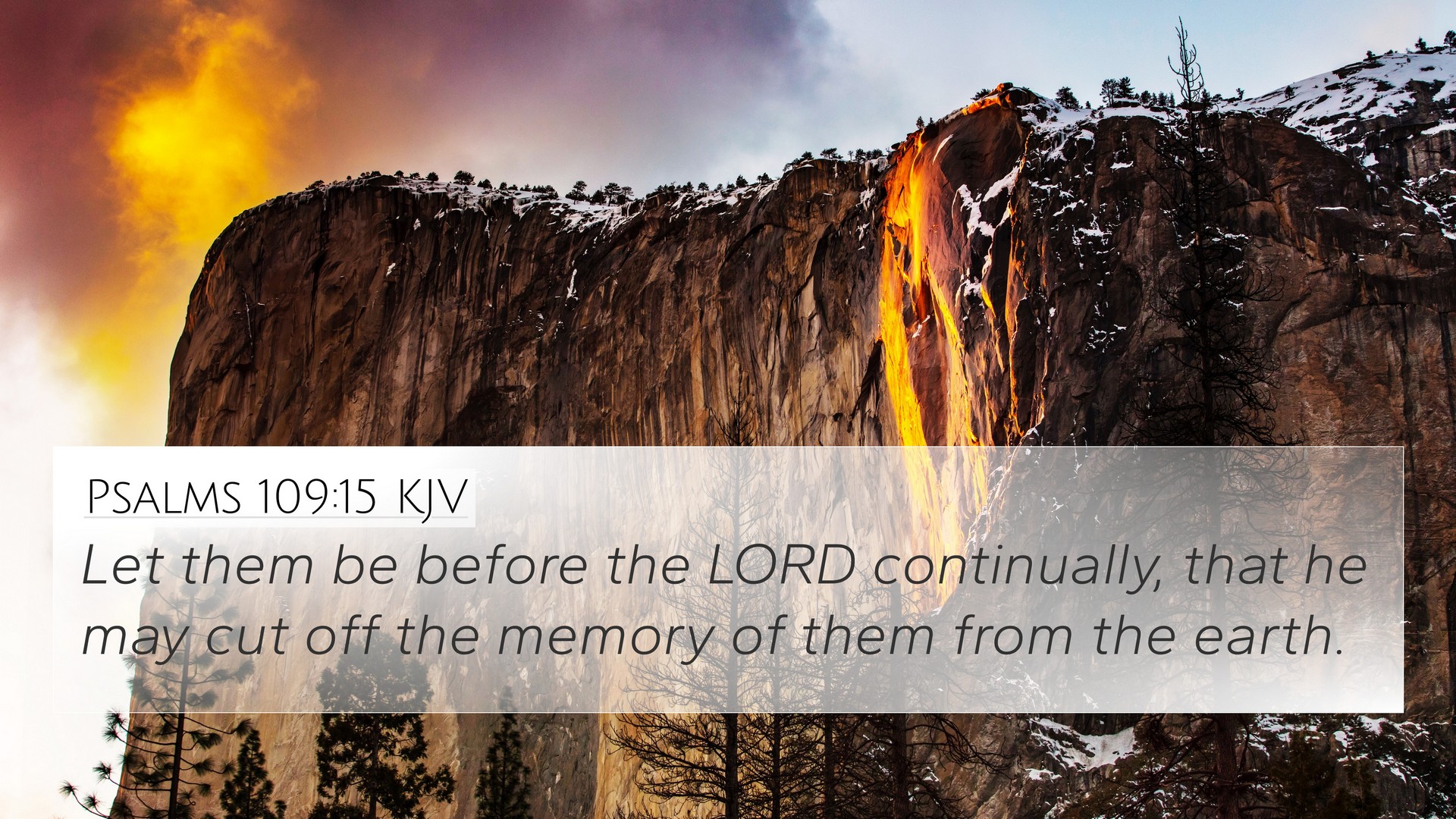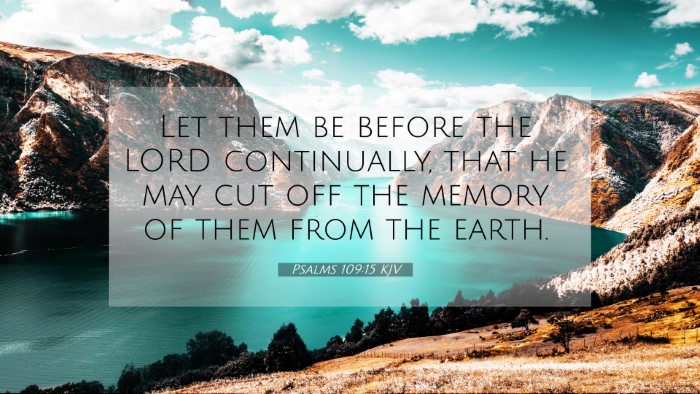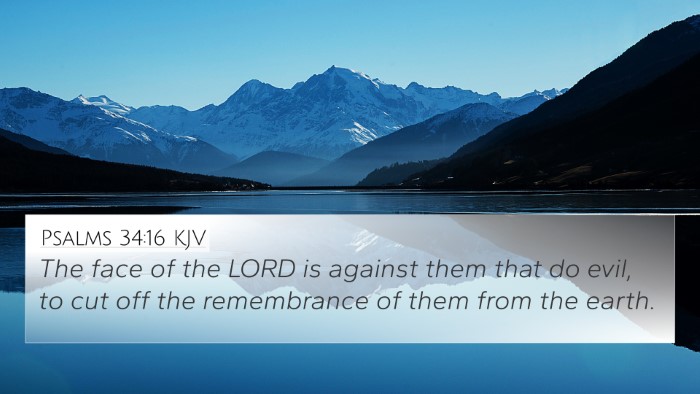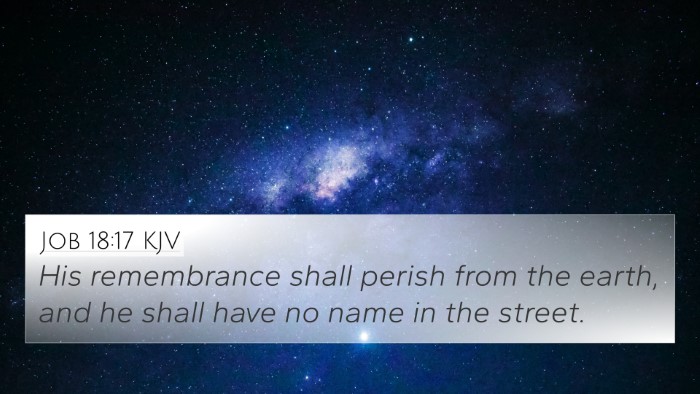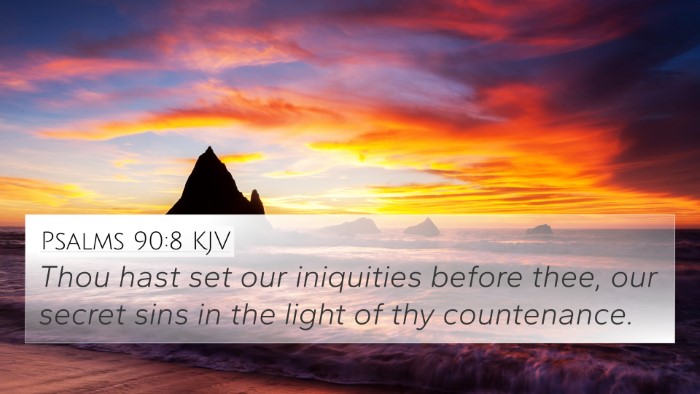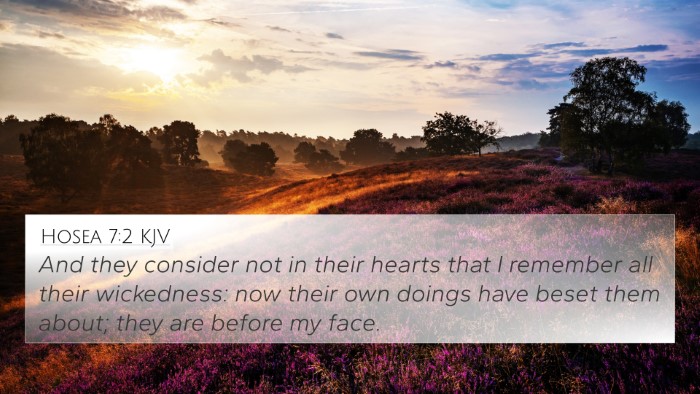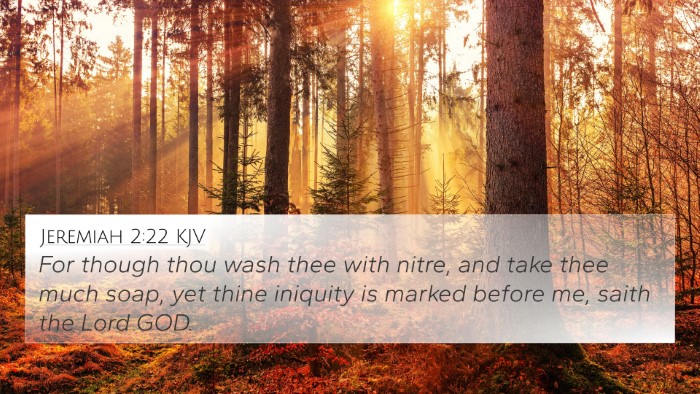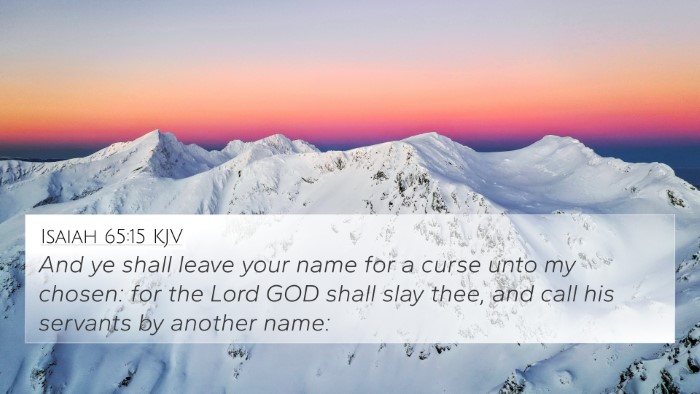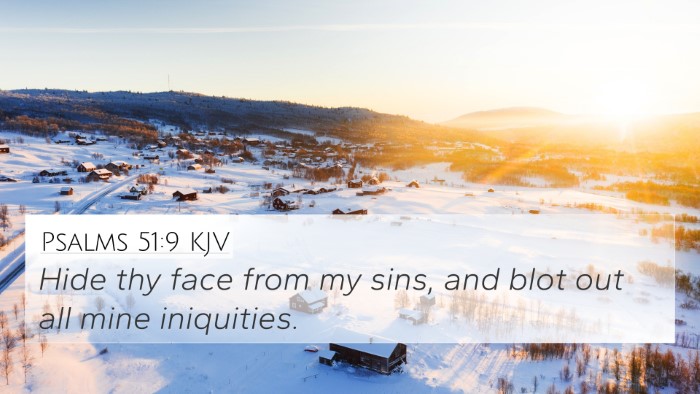Psalms 109:15 reads: "Let them be before the Lord continually, that he may cut off the memory of them from the earth." This verse expresses a plea for divine justice against the enemies of the psalmist, invoking a strong desire for God’s judgment to obliterate their influence and presence.
Summary of Interpretations
This verse reflects the deep anguish and the moral and spiritual petition of the Psalmist. The phrase "let them be before the Lord continually" suggests a desire for continual exposure of the enemies before God, while "that he may cut off the memory of them" signifies a wish for their total eradication from both memory and existence. The psalmist is seeking retribution and is turning to God as the ultimate judge, expressing a common theme of lament and justice found throughout the Psalms.
Commentary Insights
- Matthew Henry: Henry emphasizes the severity with which the psalmist seeks divine action against his enemies. He notes that the continuous presence of enemies before God highlights their wickedness, and the psalmist desires that God's wrath leads to their final disappearance.
- Albert Barnes: Barnes comments on the notion of having adversaries marked for divine judgment. He explains that the request for the memory of foes to be cut off infers a devastated reputation, witnessing to the seriousness of lasting legacy and consequences of evil deeds.
- Adam Clarke: Clarke interprets the verse in terms of spiritual warfare, suggesting that the enemies of the psalmist symbolize forces against God's truth. He urges that remembering these foes negatively influences holiness, hence the desire to erase their memory aligns with furthering God’s justice.
Bible Verse Cross-References
This verse is connected to several other biblical passages that illustrate themes of divine judgment and the eradication of evil. Key cross-references include:
- Psalms 34:16: "The face of the Lord is against those who do evil, to cut off the memory of them from the earth."
- Psalms 37:9: "For evildoers shall be cut off; but those who wait for the Lord shall inherit the earth."
- Psalms 69:28: "Let them be blotted out of the book of the living; let them not be enrolled among the righteous."
- Jeremiah 11:19: "But I was like a gentle lamb led to the slaughter. I did not know it was against me they devised schemes, saying, 'Let us destroy the tree with its fruit, let us cut him off from the land of the living, that his name be remembered no more.'"
- Revelation 20:15: "And if anyone's name was not found written in the book of life, he was thrown into the lake of fire."
- Proverbs 10:7: "The memory of the just is blessed: but the name of the wicked shall rot."
- Matthew 12:36-37: "But I say to you that for every idle word men may speak, they will give account of it in the day of judgment. For by your words you will be justified, and by your words you will be condemned."
Connections Between Bible Verses
This verse connects deeply with themes found throughout both the Old and New Testaments about the fate of the wicked and the hope of the righteous. It encourages believers to contemplate the nature of God's justice and the eventual triumph of good over evil.
Thematic Bible Verse Connections
Through cross-referencing biblical texts, we can gather a rich tapestry of related themes. The desire for justice against wrongdoers and the longing for divine intervention to erase the memory of evil find resonance in numerous passages.
- Judgment: Multiple scriptures address God’s vehement stance against wickedness and His promise to restore righteousness.
- Eradication of Evil: The theme of removing the wicked highlights the pervasive biblical call for justice.
- Divine Retribution: Connection to the final judgment illustrated in Revelation reinforces a holistic understanding of God's justice.
- Hope for the Righteous: Each connection serves as a beacon for the faithful, assuring them of God’s protection and care.
Comparative Bible Verse Analysis
By employing tools for Bible cross-referencing, readers can delve into a comprehensive understanding of the motivations behind the psalmist's plea. Identifying connections between Old and New Testament texts enriches the study of scripture, portraying a cohesive narrative of redemption and justice.
Cross-Referencing Bible Study Methods
Those interested in how to use Bible cross-references can explore various systems and tools designed to enhance understanding of interconnected themes. Utilizing a Bible concordance or reference guide can illuminate the parallels between verses, creating a dynamic study experience.
Conclusion
The study of Psalms 109:15 not only reveals the emotional depth of the psalmist's cry for justice but also underscores the wider biblical context concerning evil and righteousness. By connecting this verse with inter-biblical dialogue, believers can better appreciate the overarching themes of judgment, redemption, and divine sovereignty that resonate throughout scripture.
